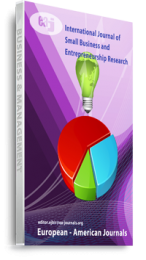The study aimed at establishing whether land access can lead to economic development in Peri-urban areas of Rwanda, with case study of Gasabo District. The objectives of this study were to ; To describe the land access situation among the population of Gasabo District, to describe the land use in Gasabo District and to evaluate (respondents view on) the relationship between the land access/use and economic development. The total sample size were 383 respondents who served as the source of primary data, secondary data was obtained from the documents, books, papers published by different institutions concerned with land and economic development issues as well as electronic sources. In additional, the number of five local leaders were considered and selected purposively to provide the reliable information through deep interviews. The primary data was collected by use of questionnaires and interview schedules that were given to respondents who were purposively selected by researcher and also who were selected through stratified random sampling. For better understanding of the conceptual frame work, the researcher reviewed the existing literature related to the subject matter of the study. Data process was done and went on with data analysis of the nature of relationship between variables. The major findings revealed that the economic development is still back-ward due to lack of sufficient land. However, according to the data collected from the selected respondents and other consulted sources revealed that improved land access can lead to the economic development in Rwanda and elsewhere.
Keywords: Economic Development and Land in Peri Urban Areas, Land Access

